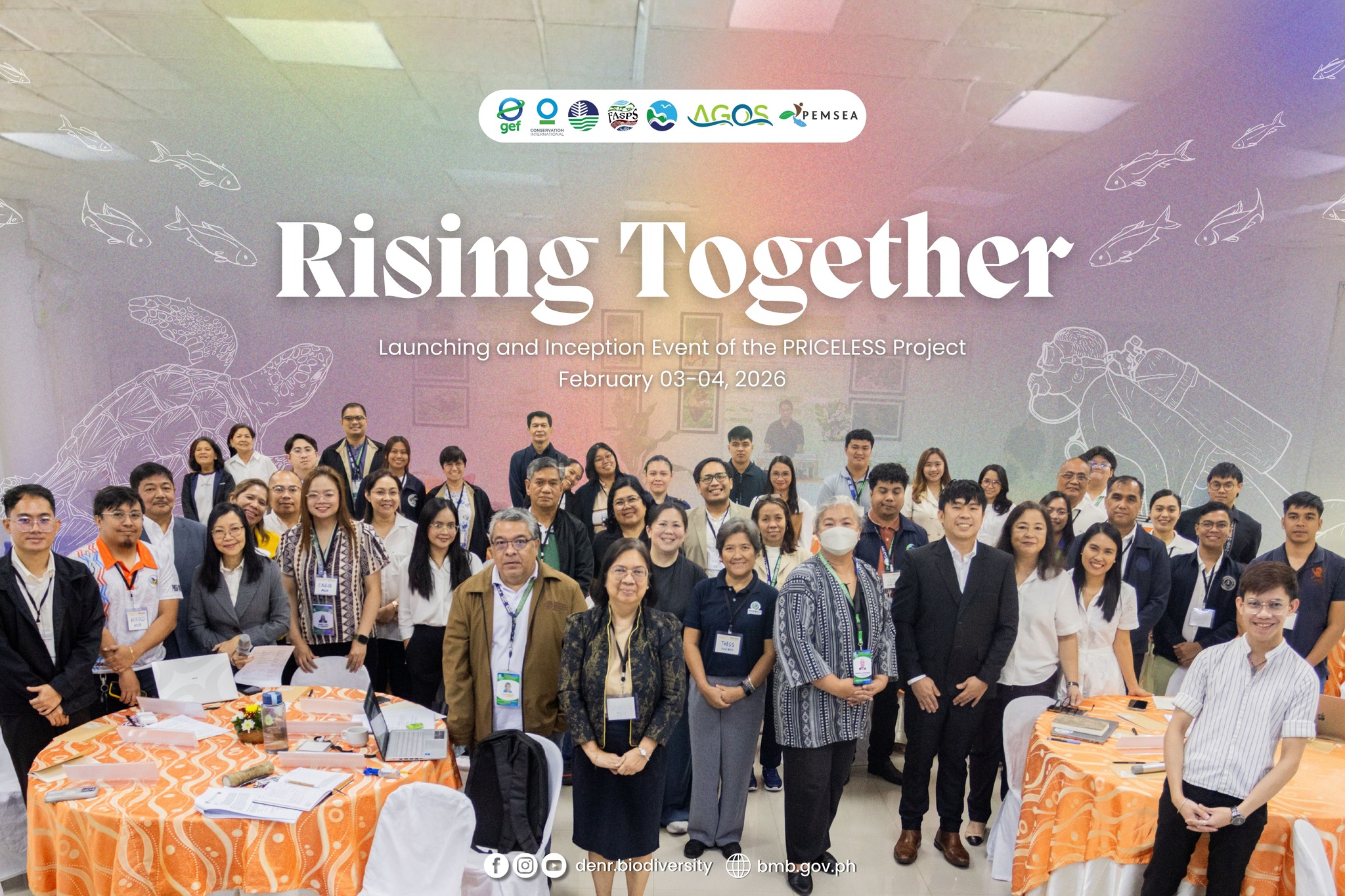GEF Training Boosts Project Oversight among the East Asian Seas Regional Operational Focal Points
Tuesday, 30 September 2025
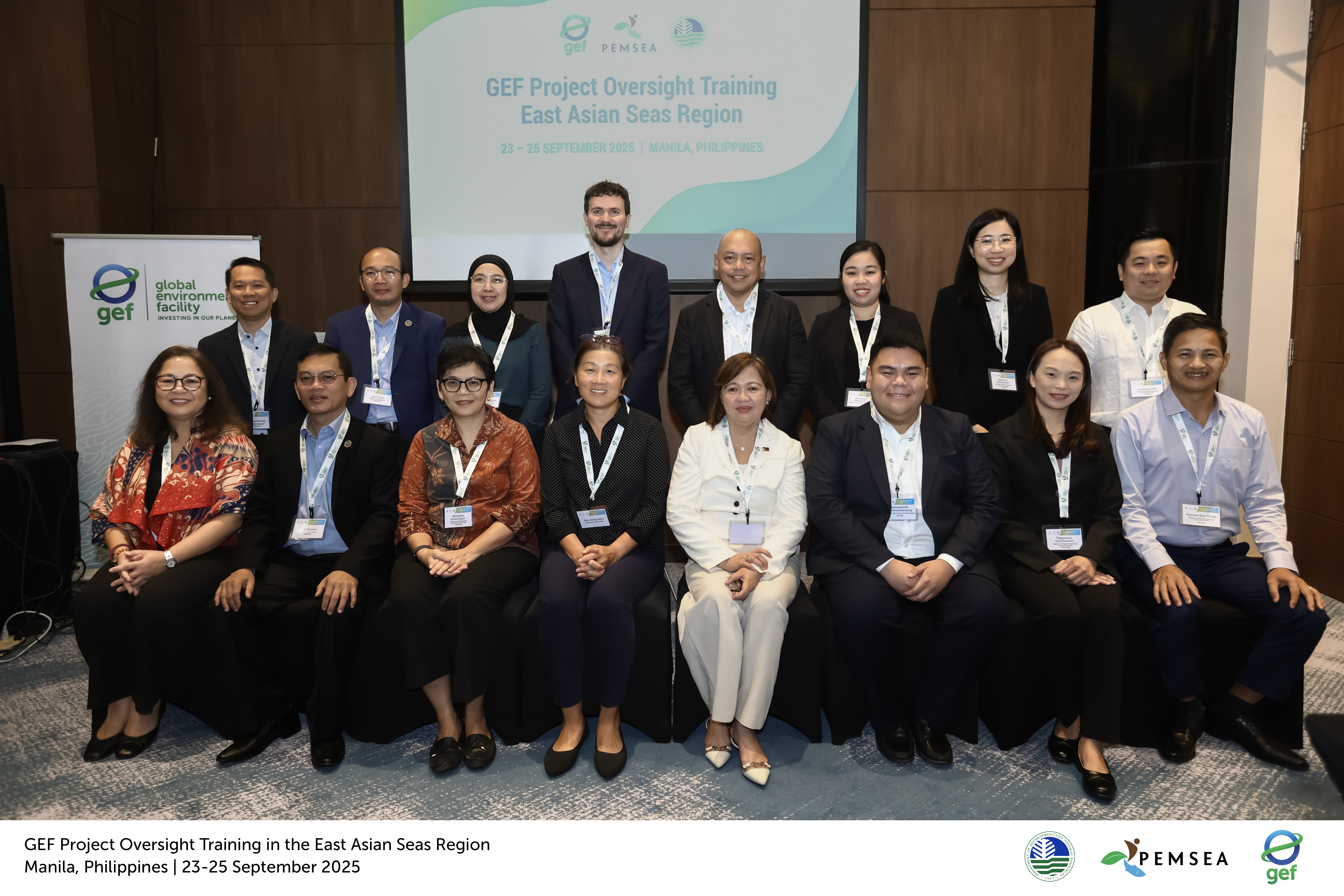
TAGUIG CITY, Philippines (25 September 2025) – The Global Environment Facility (GEF) concluded a two-day Regional Project Oversight Training in Taguig City, Philippines, convening Operational Focal Points (OFPs) from six East Asian Seas nations: Cambodia, Indonesia, Lao PDR, the Philippines, Thailand, and Viet Nam. The event was a collaborative effort by the GEF, the Partnerships in Environmental Management for the Seas of East Asia (PEMSEA), and the Philippines' Department of Environment and Natural Resources (DENR).
The training empowered regional GEF OFPs to fulfill their crucial roles in overseeing the planning and implementation of GEF Projects in their respective countries and significantly strengthened ties among their respective nations in the collective drive to meet global environmental targets. GEF invested USD 6 billion in financing in Asia and the Pacific, and the mobilization of over USD 44 billion in co-financing.
“This financing represents more than 1,190 projects in the region that have been implemented in partnership with 11 GEF agencies that are active in Asia. Thanks to this financing, GEF countries in the region have been able to work toward addressing environmental challenges and meet their international goals,” said Remy Ruat, Climate Change Specialist of GEF.
The training kicked off with GEF CEO Carlos Manuel Rodriguez, who emphasized the critical role of the OFPs and advocated for a closer, more frequent relationship between them and the GEF's central governing body.
In his video message, he noted: “The OFPs are the most important strategic partner at the country level. Having this relationship between the GEF Secretariat and the OFP more directly will help us in multiple ways, and I really welcome the opportunity of being able to have multiple workshops where we talk about what should be the right fit within the work that the GEF Secretariat and the OFPs do.
This sentiment was echoed by DENR Undersecretary and Philippines’ GEF OFP Atty. Analiza Rebuelta-Teh.
In her welcome remarks, Rebuelta-Teh underscored accountability, leadership, and collaboration as key principles of project oversight. She also highlighted the training’s alignment with the new GEF-8 Country Engagement Strategy and called for stronger regional collaboration to address shared challenges, including climate change and biodiversity loss.
“Our countries are bound by shared seas, coastlines, and ecosystems, and also by shared challenges such as climate change, land degradation, or threats to biodiversity. By coming together, we create a community of practice where we can learn from each other’s good practices, innovations, and success stories,” she noted.
Meanwhile, Nancy Bermas, Regional Project Manager of the GEF/UNDP/ASEAN Integrated River Basin Management (IRBM) Project, shared lessons and work in practice on project development and implementation from three decades of regional partnerships.
She emphasized aligning projects with global, regional, and national priorities, integrating Gender Equality and Social Inclusion (GESI), strengthening monitoring and evaluation, and establishing institutional mechanisms for sustainability and scaling up. Similarly, her insights underscored the importance of collaboration and innovation in achieving the Sustainable Development Goals (SDGs) and Multilateral Environmental Agreements (MEAs) by 2030.
“Keeping stakeholders informed and engaging them in the early stages of project implementation promotes ownership and appreciation of their roles and contributions in delivering the outputs,” she said.
Field visit at GEF/UNIDO/DENR Cold Chain Innovation (CCI) Hub
GEF OFPs also gained practical experience through a field visit to the GEF/UNIDO/DENR Cold Chain Innovation (CCI) Hub at the TESDA Complex in Taguig City.
This innovative hub is the official platform for the Global Partnership for Improving the Food Cold Chain in the Philippines. It showcases sustainable technologies like the Solar Driven Freezer, Plug-in R290 walk-in cooler, CO₂ TC Refrigeration System, and EPTA Freezer, among others, which are designed to lessen greenhouse gas emissions. The Cold Chain Innovation Hub Project aims to identify, develop, and stimulate the development of low-carbon, energy-efficient refrigeration innovation technologies and business practices in the Philippines for use throughout the food cold chain, while increasing food safety and security.
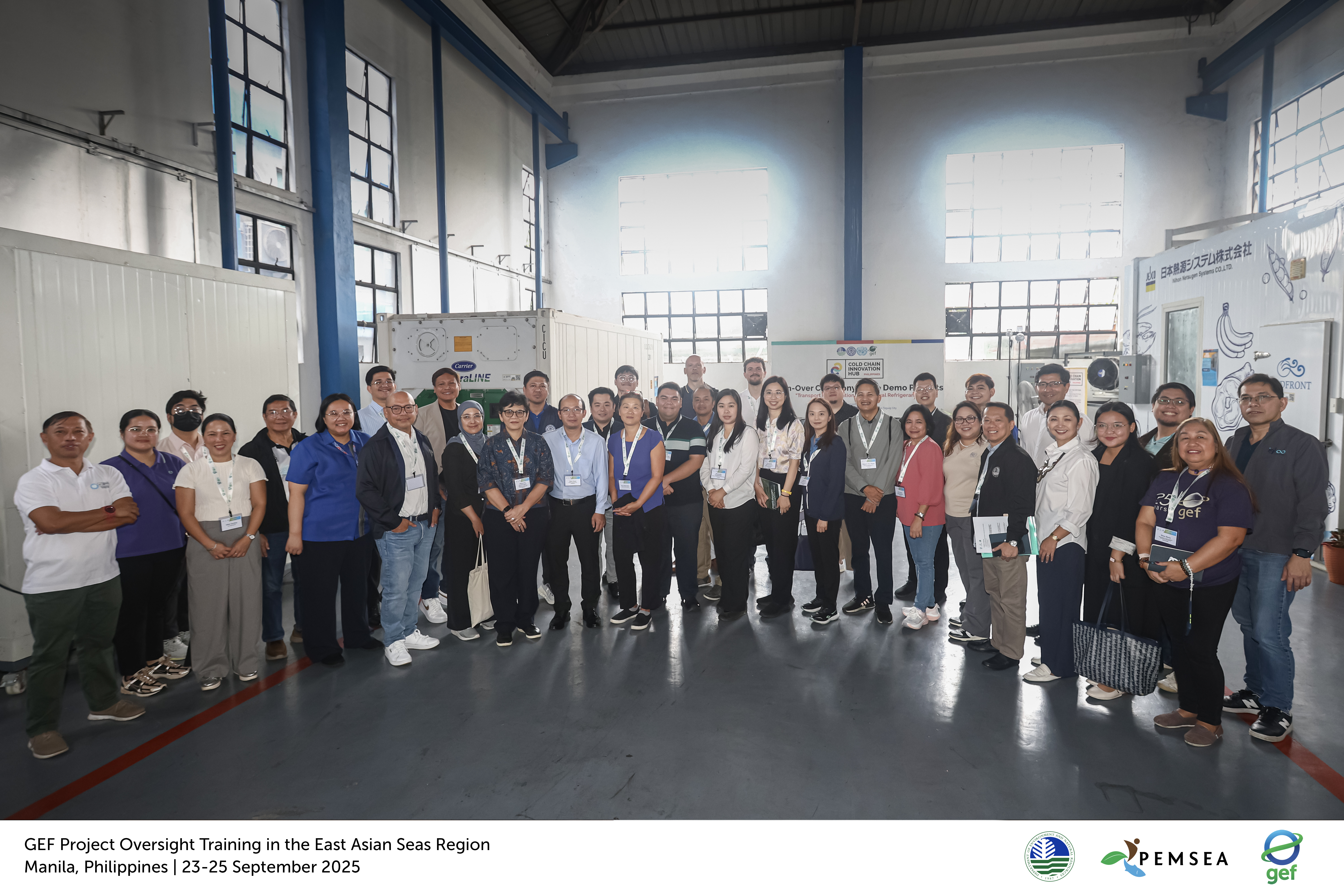
GEF OFPs across the East Asian Seas Region visited the GEF/UNIDO/DENR Cold Chain Innovation (CCI) Hub at the TESDA Complex in Taguig City on Wednesday, September 24, to learn from the project’s stakeholders on the implementation challenges and successes of the CCI Hub.
During the visit, GEF OFPs and other participants learned from the project’s stakeholders discussing the implementation challenges and successes of the CCI Hub. They highlighted the project’s sustainability mechanisms—from institutional ownership to private sector adoption—and identified opportunities for scaling up results to benefit more communities and industries.
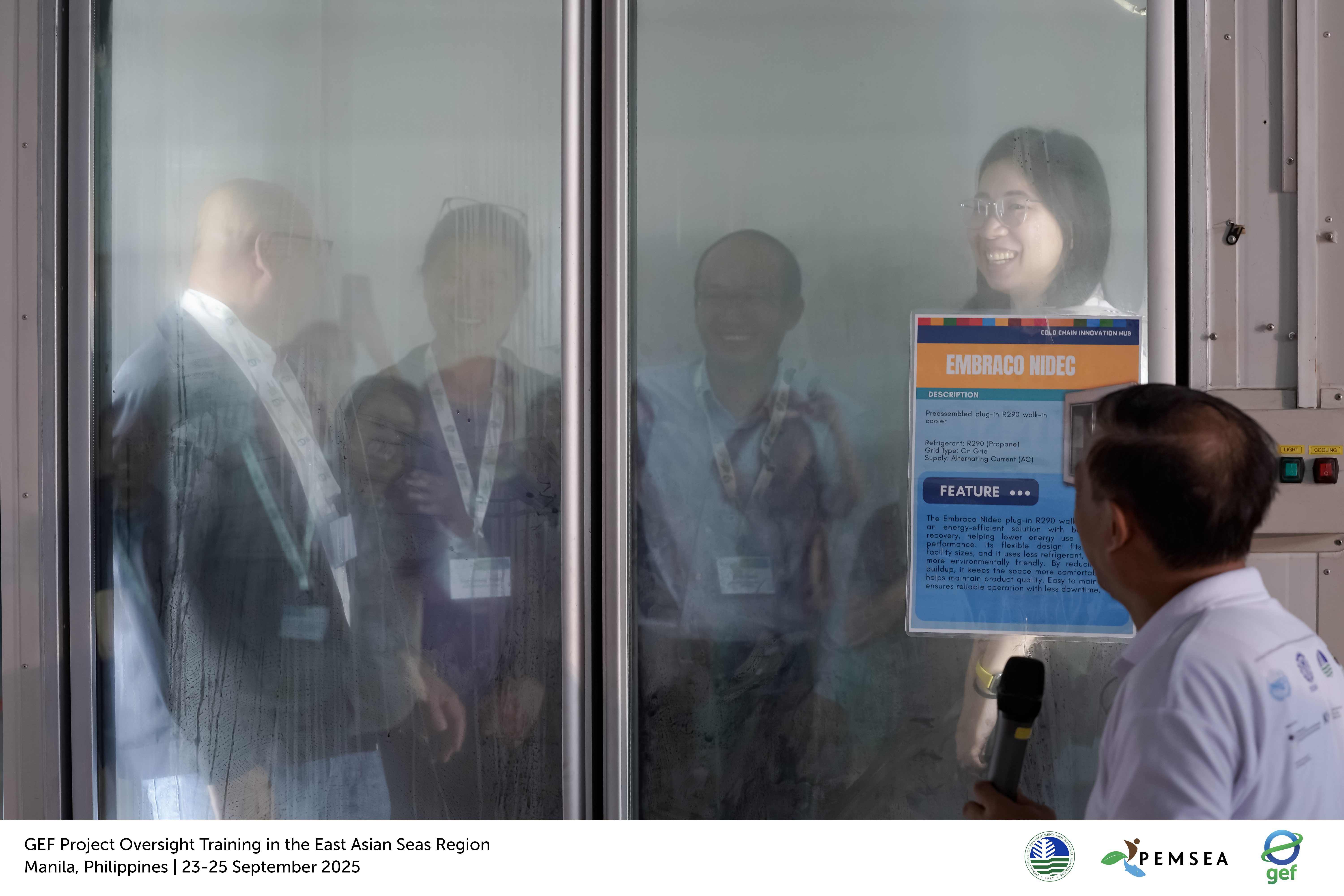
Some of the participants in the field visit tried the Plug-in R290 walk-in cooler, an energy-efficient solution with built-in heat recovery, helping lower energy use and boost performance. The cooler has a flexible design that fits different facility sizes, and it uses less refrigerant, making it more environmentally friendly.
A plenary discussion, joined by various stakeholders—including representatives from Cold Front Technologies Asia Inc., Camp Backpackers, the Refrigeration and Air-conditioning Technology Association of the Philippines (RACTAP), Glacier Integrated Logistics Inc., and the Jacobo Memorial School—provided OFPs insights on lessons learned and best practices relevant to enhancing their oversight capabilities.
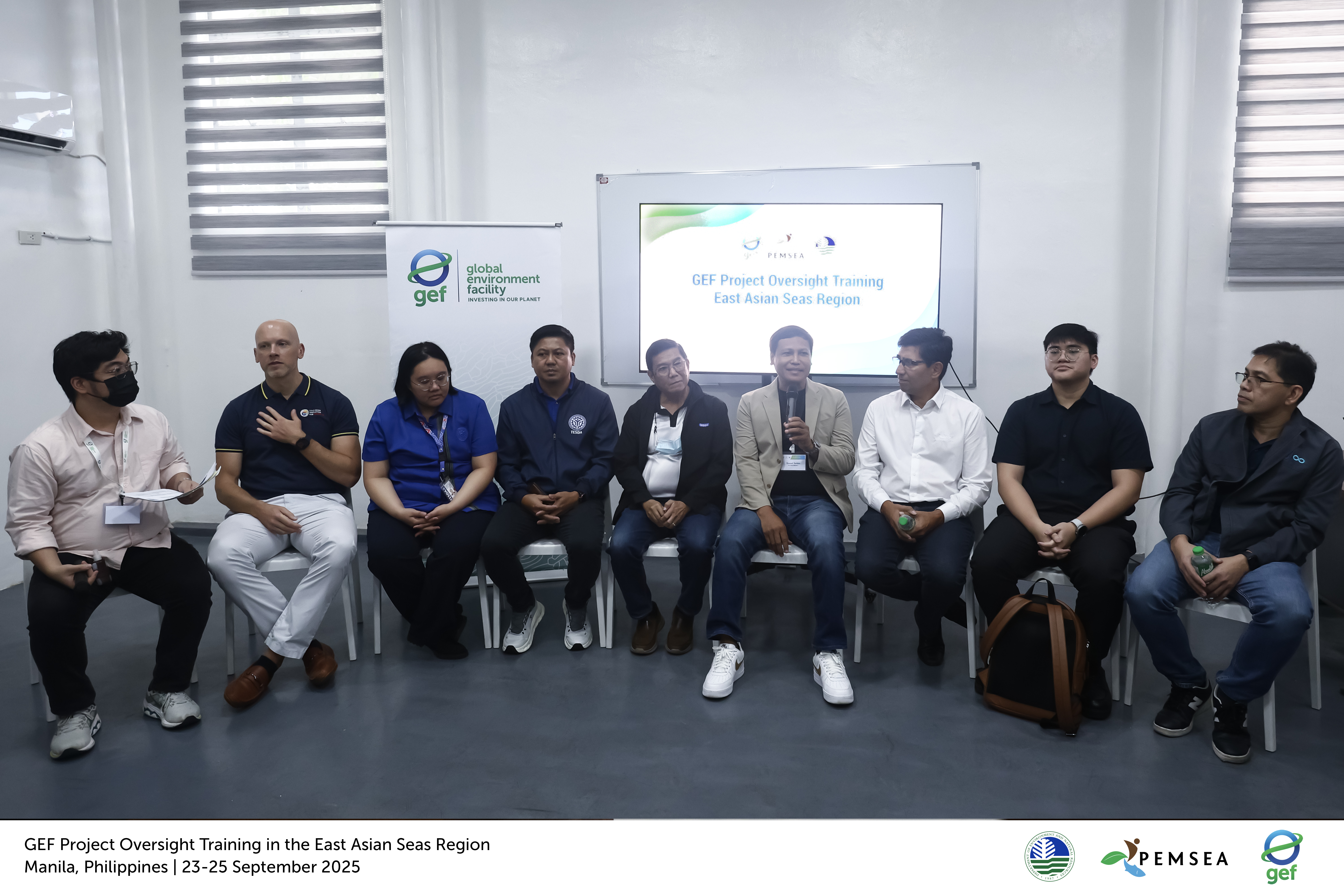
Various stakeholders shared lessons learned and best practices relevant to enhancing OFPs’ oversight capabilities during the plenary discussion at the CCI Hub.
“This training is highly valuable for us as Operational Focal Points. It empowers me to ensure that GEF projects in Viet Nam are more efficient and sustainable by prioritizing projects that align closely with our national goals,” said Nguyen Thuan Duc from the Viet Nam Ministry of Natural Resources and Environment and Viet Nam’s GEF OFP.
He added, “We will also give attention to projects that need adaptive management—those that must evolve and adjust for better implementation and greater impact.”
Seo-Jeong Yoon, Policy and Country Officer for Asia and the Pacific of GEF, meanwhile, highlighted the value of knowledge-sharing and collaboration among OFPs during the workshop, emphasizing that the most meaningful part was learning from each other’s experiences—particularly how OFPs engage a diverse range of stakeholders.
“The most exciting part of this workshop was the sharing of best practices and learning from each OFPs. These include engagement with a wide range of stakeholders, including various ministries, civil society organizations, women, youth, and the private sector; securing buy-in and developing rules and procedures; robust data-gathering and public dissemination practices; and the critical role of OFPs in ensuring country ownership during project implementation,” she shared.
About the Global Environment Facility
The Global Environment Facility (GEF) includes several multilateral funds working together to address the planet's most pressing challenges in an integrated way. Its financing helps developing countries address complex challenges and work towards meeting international environmental goals. Over the past three decades, The GEF has provided more than USD 26 billion in financing, primarily as grants, and mobilized another USD 153 billion for country-driven priority projects.

